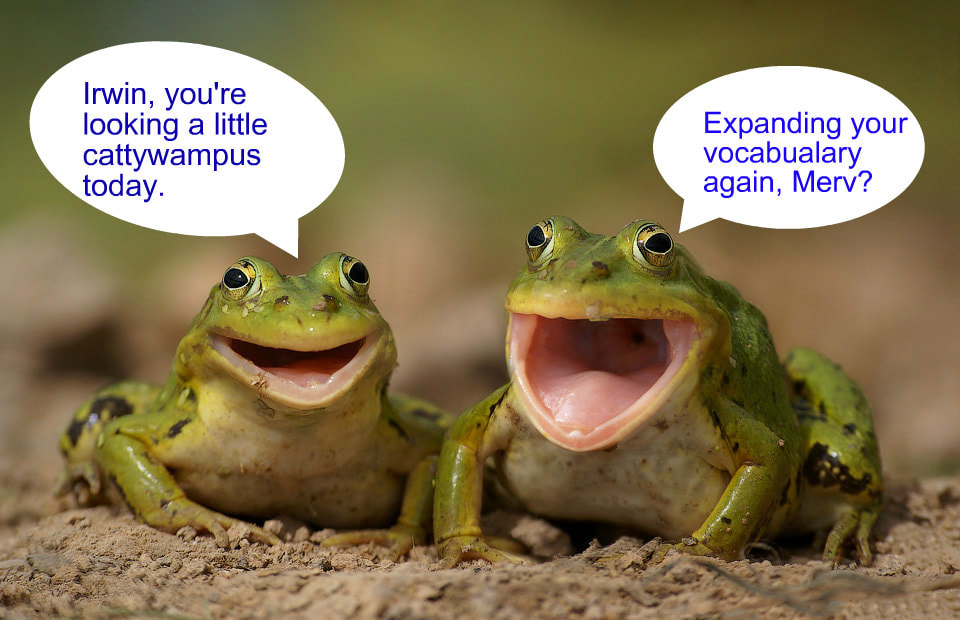1. Bamboozled: thrown into a state of confusion or bewilderment especially by being deliberately fooled or misled.
According to the Merriam-Webster Dictionary, this word has actually been around since at least 1703. It comes from the 17th-century word "bam" which means to trick or to con.
2. Cattywampus: askew; awry; positioned diagonally.
Cattywampus comes from catawampus, which, according to Dictonary.com, likely came about between 1830 and 1840. It is derived from the prefix cata, meaning diagonally and likely wampus, which the site says is akin to the word wampish, meaning to flop about.
3. Discombobulate: To confuse, upset, frustrate.
An American word first used in 1825-1835, according to Dictionary.com, it’s a fanciful alteration of discompose or discomfort.
4. Foppish: foolish, silly, obsolete.
This funky little word is derived from the word fop, which is used to redescribe a man who is excessively vain and worried about his dress and appearance; it also can mean a foolish or silly person. The adjective of foppish is similarly used to mean that something is obsolete, foolish or silly. It has been rolling off tongues for centuries now, first appearing in the late 1500s.
5. Jalopy: an old, decrepit, or unpretentious automobile.
An oldie but goodie, jalopy seems to be getting some love from “New York Post.” This word, an American word, dating back to 1925-1930, is often used when referencing items other than vehicles despite its specific meaning. According to Dictionary.com, a “Post” article recently revived the word once again, this time in an article about people updating their phones rather than buying new ones. The use of jalopy in this article spurred a more than 3,000% increase in searches for the word online.
6. Meme: an idea, behavior, style, or usage that spreads from person to person within a culture.
Believe it or not, the word meme was first used in 1976, as an abbreviation of the word mimeme in Richard Dawkins' book "The Selfish Gene" in which he discussed how ideas and styles spread within a culture over time. Today, the word has become synonymous with amusing captioned pictures and videos online. Think, Grumpy Cat or Salt Bae.
And finally,
7. Tergiversate: to change repeatedly one's attitude or opinions with respect to a cause, subject, etc.
This unique word holds an honor that very few words can claim: it was named the 2011 Word of the Year by Dictionary.com. Why? According to the website, this weird word rose to fame “because it described so much of the world around us. Editors at Dictionary.com saw the stock market, political groups, and public opinion go through a roller coaster of change throughout 2011.”
I hope you enjoyed a look into a few of the weirder words in the English language. These aren't, by any stretch of the imagination, all of them. But I found these seven to be among my favorites. Don't forget to stop back by here tomorrow when my wise friend and teacher, The Dharma Frog, will have another life lesson for me. Until then, I wish you
PEACE.

 RSS Feed
RSS Feed